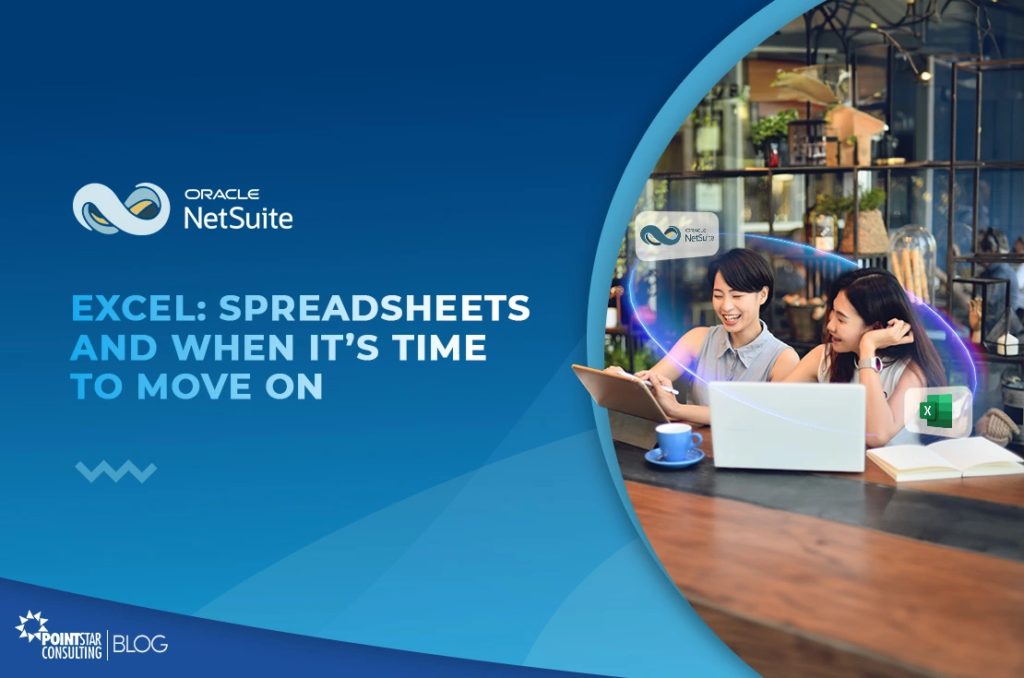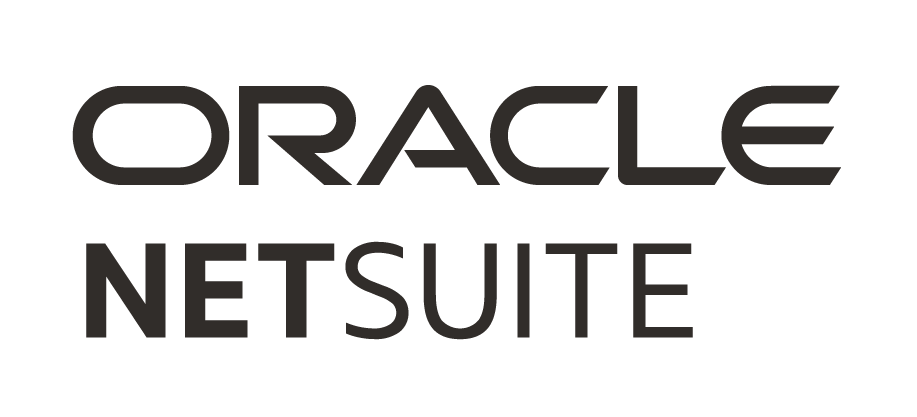For small businesses, the choice between using Microsoft Excel or choosing a dedicated accounting software like the Oracle NetSuite cloud ERP may seem simple. Excel offers simplicity and flexibility, making it an attractive option for sole proprietors and very small businesses.
However, as businesses grow and their accounting needs become more complex, Excel’s limitations become apparent.
This article explores the pros and cons of using Excel to manage an organisation’s finance and accounting processes and discusses when it might be time to upgrade to cutting-edge cloud accounting software such as Oracle NetSuite.
The Advantages of Using Excel for Accounting
Flexibility and Familiarity
Excel’s primary advantage lies in its flexibility. Users can design their own templates, tailor them to specific business needs, and adjust them as those needs evolve. Additionally, many business owners and employees are already familiar with Excel, reducing the learning curve and initial setup time.
Cost-effective for Small Businesses
For businesses already using the Microsoft 365 suite, Excel incurs no additional cost. This makes it an economical choice for small businesses with limited budgets.
Basic Transaction Tracking
Excel is well-suited for basic transaction tracking. It allows businesses to maintain records of customer payments, expenses, and distributions without needing to invest in more complex systems. For example, businesses can set up worksheets to track receivables, income, payables, and expenses easily.
The Drawbacks of Using Excel for Accounting
Risk of Errors
Excel’s manual data entry process is riddled with human errors, which can multiply as the volume of transactions grows. Mistakes such as omitted entries, incorrect formulas, or misapplied accounting principles can lead to significant financial inaccuracies.
Lack of Automation
Excel requires manual updating and maintenance of financial records. This lack of automation can be time-consuming and labour-intensive, especially as the business scales up and the number of transactions increases.
Security Concerns
Excel files lack robust security features. Sensitive financial data can be easily accessed, modified, or deleted by anyone with access to the file, posing significant risks as the business grows.
Scalability Issues
While Excel can handle basic accounting needs, it struggles with the complexities of larger businesses. Features such as inventory tracking, multi-user access, and real-time financial reporting are beyond its capabilities.
When to Move to Accounting Software?
Growing Business Complexity
As a business grows, so does its financial complexity. More transactions, more clients, and the introduction of payroll and inventory necessitate a more robust accounting solution. Accounting software can automate many of these processes, reducing manual entry and the associated risks of errors.
Need for Accrual-Basis Accounting
Businesses required to comply with Generally Accepted Accounting Principles (GAAP) or those carrying inventory must use accrual-basis accounting. Excel is not well-suited for double-entry bookkeeping and the detailed tracking required for accrual accounting. Accounting software simplifies this by automating entries and ensuring compliance with accounting standards.
Enhanced Reporting and Analysis
Advanced accounting software provides real-time financial reporting, offering insights into the business’s financial health at any moment. This capability is essential for making informed business decisions, which Excel’s manual and often outdated reports cannot provide.
Improved Security and Backup
Accounting software typically includes advanced security features, such as role-based access control and data encryption, which protect sensitive information. Additionally, cloud-based solutions like NetSuite offer automatic backups, ensuring data is not lost due to hardware failure or accidental deletion.
Integration with Other Business Systems
Modern accounting software can integrate with other business applications such as payroll, CRM, and inventory management systems. This integration allows for seamless data flow between departments, improving efficiency and accuracy.
When to Move From Excel to NetSuite and Why
A small business that has used Excel for accounting for several years will find it sufficient for tracking a handful of transactions. However, as the business expands, the limitations will become apparent. Manual data entry becomes overwhelming, errors creep into financial records, and producing accurate, timely financial reports becomes a constant challenge.
Growing businesses will experience several immediate benefits by transitioning to accounting software like NetSuite. The automation of invoicing, expense tracking, and bank reconciliation will reduce the manual workload and minimise errors. Real-time financial reporting provides better insights into profitability and cash flow, aiding in more strategic decision-making. Enhanced security features protect sensitive financial data, and the integration with other business systems streamlines operations across the board.
Conclusion
While Excel can be a powerful tool for basic accounting in very small businesses, its limitations make it unsuitable for growing enterprises with more complex financial needs. Accounting software like NetSuite offers numerous advantages, including automation, enhanced security, real-time reporting, and scalability. As a business grows and its accounting requirements evolve, making the transition to dedicated accounting software can significantly improve efficiency, accuracy, and financial management.



